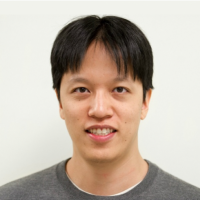SystemX Affiliates: login to view related content.

Computing technology has been a backbone of our society. Its importance is hard to overemphasize. Today, we again confirm its extreme importance with recent advances in artificial intelligence and deep learning. Those emerging workloads impose an unprecedented amount of arithmetic complexity and data access beyond our existing computing systems can barely handle. Particularly, mobile and embedded computing systems will face a major challenge in achieving energy-efficient computing for truly enabling intelligent systems. In this seminar, we will outline the bottlenecks of energy-efficient computing, notably the broken Dennard scaling and the memory wall problem. We will then discuss several approaches that our group has been working on, including a massively-parallel near-threshold processor, circuits and architectures to tolerate variability, active leakage suppression, integrated DCDC converters and voltage regulators for per-core DVFS, in-memory computing hardware, hybrid analog-digital computing, and a deep learning algorithm that reduces communication to off-chip memory. We will introduce several test-chip prototypes and their measurement results.
Mingoo Seok is an associate professor of Electrical Engineering at Columbia University. He received the BS from Seoul National University, South Korea, in 2005, and the MS and Ph.D. degree from the University of Michigan in 2007 and 2011, respectively, all in electrical engineering. His research interests are various aspects of VLSI circuits and architecture, including ultra-low-power integrated systems, cognitive and machine-learning computing, adaptive technique for the process, voltage, temperature variations and transistor wear-out, event-driven controls, and hybrid continuous and discrete computing. He won 2015 NSF CAREER award. He is the technical program committee members for multiple conferences including IEEE International Solid-State Circuits Conference (ISSCC). He has been as an associate editor for IEEE Transactions on Circuits and Systems Part I (TCAS-I) (2014-2016), IEEE Transactions on VLSI Systems (TVLSI) (2015-present) and for IEEE Solid-State Circuits Letter (SSCL) (2017-present).


